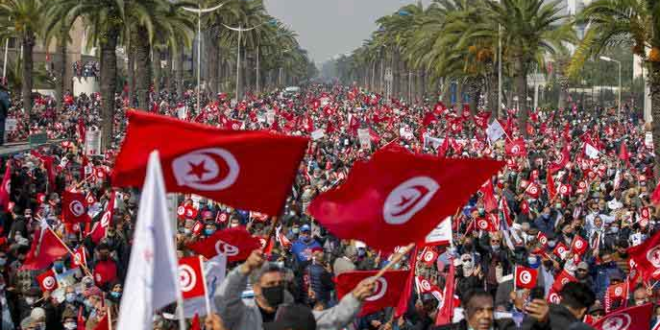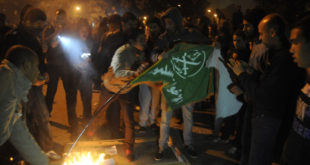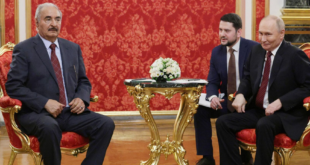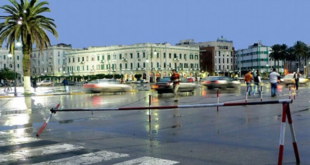On July 25, 2021, Tunisian President Kais Saied dismissed Prime Minister Hichem Mechichi, froze the parliament, suspended the legal immunity of parliament members and took control of the general prosecutor’s office. He warned against any armed response to his actions: “Whoever shoots a bullet, the armed forces will respond with bullets.” In the hours after Saied’s announcement, huge crowds gathered in his support in Tunis and other cities, while the military blocked off the parliament and state television station.
The popularity of Saied’s decisions stems from the legitimate anger of Tunisians against their country’s parliament, which has become very unpopular. When the president sacked the health minister after a botched handling of vaccine walk-in centres and ordered the army to take control of the pandemic response, popular protests took place against the government, culminating in the present-day power shifts. These conjunctural changes are embedded in a structural framework which has permanently characterized Tunisia after 2011.
Neoliberalism
On December 17, 2010, Mohamed Bouazizi – a Tunisian street vendor – set himself on fire following yet another instance of harassment and humiliation at the hands of local police and municipal officials. Within hours of his self-immolation, protests began erupting across the town, rapidly gathering pace and spreading outwards to other urban centres. Bouazizi’s death was long and agonizing; when he finally died on January 4, 2011, the conflagration sparked by his act roared into the national capital. In a matter of days, dictator Ben Ali was forced into exile.
Tunisia’s people did not only oppose the political authoritarianism of the Ali administration, but also the neoliberal policies under his rule which created massive inequality, unemployment and widespread misery. The ruling elites completely ignored the latter dimension, choosing to impose further neoliberalism in the aftermath of the revolution. Tunisia’s current ruling party, the Islamist Ennahda, garnered votes as it had been outlawed under the Ali regime. Many people perceived it as revolutionary.
However, governments led by Ennahda implemented free market reforms in return for loans from the International Monetary Fund (IMF). Fuel subsidy cuts, price rises and the dismantlement of public sector hiring synchronized with the enrichment of the bourgeoisie. Now, 10 years after the revolution, the rate of unemployment in Tunisia is nearly 18%. Max Ajl, Bassam Haddad, and Zeinab Abul-Magd note:
“The state has absorbed the political effects of mass immiseration, distributing subsidies to popular classes to absorb social unease. Its primary role has been to contain the discontent by the carrot of subsidies and the stick of state violence while serving as a mechanism for increasing integration of Tunisia into the international division of labor: by increasing subjugation to the global law of value through currency devaluation, deepening trade agreements with the EU [European Union], and opening agriculture for foreign investment…Unrest has intensified. The government has become almost entirely a mechanism for ever-continuing accumulation.”
Caesarism
Tunisian society – like any other society – is a totality structured in dominance. Among the various structural instances, one instance will have the dominant role: contradictions at other levels will find themselves displaced to this instance (thereby averting a revolutionary rupture) or many contradictions may become condensed in this instance (producing the possibility of a revolutionary rupture). The dominant instance will vary according to the social formation, but in all cases its role is determined – in the last instance – by the economy. In other words, the economy often exercises its effects indirectly, by determining the specific efficacy of other instances.
Saied’s victory in the October 2019 presidential election displaced the economic limits of Tunisia’s post-revolutionary system to the level of politics. Disillusioned with the dysfunctional rules of status quo, Tunisians elected someone who sought to portray himself as an anti-politician. Running as an independent and nicknamed “Robocop” for his stern, monotonous character, Saied promised to crack down on corruption among the political class. His anti-corruption discourse steadily morphed into a wide-ranging narrative of anti-systemic populism; a desire for greater power soon made itself felt.
In April 2021, Saied declared, “The president is the supreme commander of the military and civilian armed forces. Let this matter be clear to all Tunisians”. A month later, Middle East Eye revealed the existence of a secret document, in which the president’s advisers invited him to carry out a “constitutional coup”. Thus, from the beginning, Saied’s presidency had the character of what Antonio Gramsci called “Caesarism” – a phenomenon in which an individual breaks the stasis in a socio-economic system by operating as an equilibrating factor between classes, demagogically representing the interests of the subaltern masses. Gramsci elaborates:
“[T]he content is the crisis of the ruling class’s hegemony, which occurs either because the ruling class has failed in some major political undertaking for which it has requested, or forcibly extracted, the consent of the broad masses (war, for example), or because huge masses (especially of peasants and petit-bourgeois intellectuals) have passed suddenly from a state of political passivity to a certain activity, and put forward demands which taken together, albeit not organically formulated, add up to a revolution…The traditional ruling class, which has numerous trained cadres, changes men and programmes and, with greater speed than is achieved by the subordinate classes, reabsorbs the control that was slipping from its grasp. Perhaps it may make sacrifices, and expose itself to an uncertain future by demagogic promises; but it retains power, reinforces it for the time being, and uses it to crush its adversary and disperse his leading cadres, who cannot be very numerous or highly trained … When the crisis does not find this organic solution, but that of the charismatic leader, it means that a static equilibrium exists (whose factors may be disparate, but in which the decisive one is the immaturity of the progressive forces); it means that no group, neither the conservatives nor the progressives, has the strength for victory, and that even the conservative group needs a master.
In Tunisia, the hegemonic capacities of the post-2011 historical bloc gradually weakened as a neoliberal orientation came to be eagerly embraced by both Islamist and secularist political forces. The sporadic and inorganic nature of popular movements proved incapable in radically superseding this moribund conjuncture. Hence, Tunisians were gifted with Saied, who overcame the impasse in by unleashing the Caesarist logic of delegation to a strongman. His ideological project has ended up with the current events, wherein Tunisians have been demobilized through a reconfiguration of the political arena. What should be the attitude of progressive sectors toward these transformations?
The leftist Workers’ Party of Tunisia (PCT) released a statement on July 26, 2021, condemning Saied’s moves and calling them a violation of the constitution. While acknowledging that the government has led the country into a deep economic crisis, PCT stated that Saied’s actions are not a solution to the problems facing the people as they threaten the country’s young democracy and have “launched a path towards re-establishing the system of absolute autocracy again.” The party has asserted that the way out of the crisis is “the work of the Tunisian people to establish a popular democracy based on the civil state, the power in the hands of the people, with sovereignty over the country’s capacities, resources and independent political decisions, and social justice and equality among all men and women.”
 Eurasia Press & News
Eurasia Press & News




